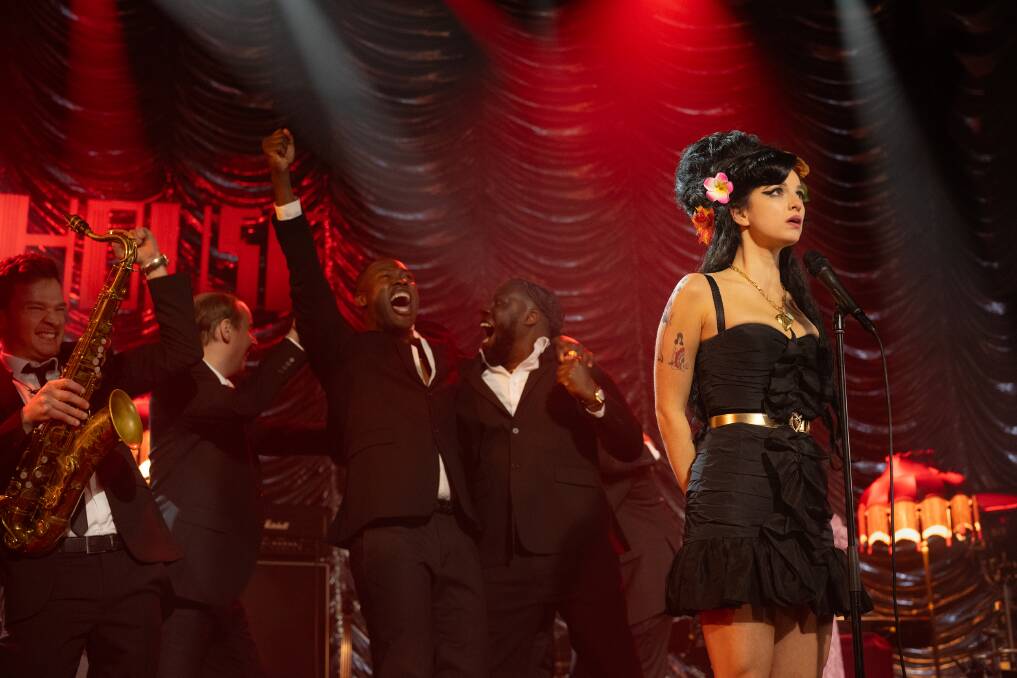Back to Black (MA15+, 122 minutes)
3 stars
One of the most unique and distinctive voices of the 21st century gets the biopic treatment in Back to Black.
Even if you've never particularly listened to her music, most people know Amy Winehouse's hit song Rehab and its hooky little "no, no, no" refrain.
Following the musical biopic structure to a tee, Sam Taylor-Johnson's Back to Black holds off on sharing that big number until near the end of the film.
The Fifty Shades of Grey director who - like our protagonist - has garnered more press interest for her personal life than her work, handles the film well, and Marisa Abela, who plays the talented songstress, does a commendable job.

But following the biopic structure as screenwriter, Matt Greenhalgh (Nowhere Boy) is less successful here given Winehouse's tragically short life left little room for Back to Black to be filled with a multitude of immediately, universally recognised toe-tappers.
Because Winehouse only had about three or four songs the public at large knew really well, there's just not enough moments for a sneaky cinema singalong to elevate the film above a tragic drama with a few hits.
We meet a young Amy at about 18 years old, chatting to her beloved nan Cynthia (a scene-stealing Lesley Manville who has never failed to be excellent) about her love of all things vintage, especially the 1950s and '60s, before joining the family in a living room song-filled celebration.
This is a hopeful, inspired Amy, surrounded by loving family on her paternal side. But once dad Mitch (Eddie Marsan, doing a fine job) takes her home, we start to see that not everything is as rosy as we first thought - she's quick to anger and defensiveness, says her mum isn't well (though we don't get anymore information on that front, nor on her brother who is mentioned once and then promptly forgotten forever) and favours a drink too much to be healthy.
Her self-destructive behaviours and struggles don't seem to spring from any trauma or poverty, at least not that we're shown, so it is harder, as an audience member, to feel as much sympathy for the way her life plays out. It's highly possible that she was experiencing undiagnosed mental health issues in real life, but given what we're presented in the film, this is unknowable.
Back to Black shows, however, that those self-destructive tendencies only got worse once Amy met Blake (Jack O'Connell, Money Monster), and the pair's vices fed off one another. She is immediately smitten with the charming but irresponsible man, and quickly reshapes her whole life around loving him, to occasionally violent ends.
When their relationship fizzles the first time, the film does a great job of providing a backdrop for the titular song this break-up inspires.
If more time was dedicated to delving into Winehouse's process in writing the songs and how they came together, the film would be improved. But there's little of that on offer, as most of the film is dedicated to Amy and Blake's volatile relationship. Perhaps calling the film Amy and Blake would have been a more suitable option, like Sid and Nancy.
Despite its flaws, Back to Black is a decent drama and it's impossible to deny Winehouse's skill as both a singer and a songwriter. At the very least it makes you want to pull out her albums and give them a good listen.
Oddly for a biographical film, there is no real-life archive footage of Winehouse shown at the end. This is a disappointing misstep, which does lessen the enjoyment of the film.

